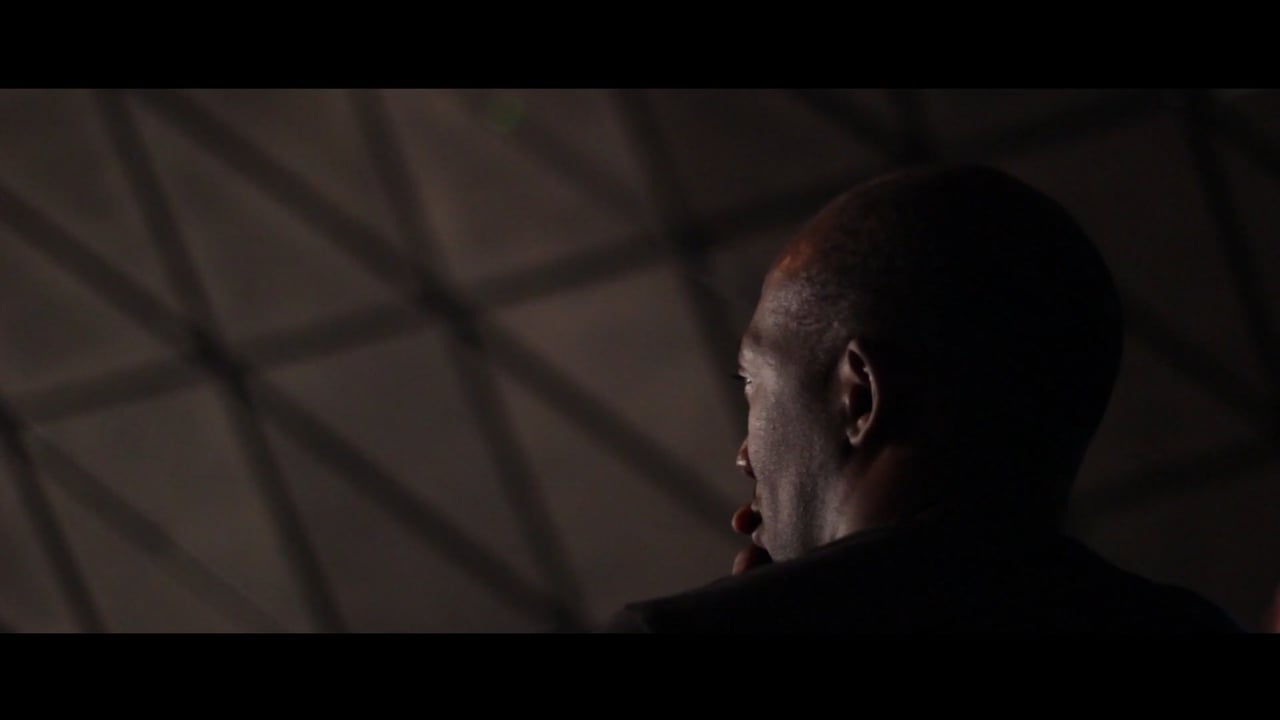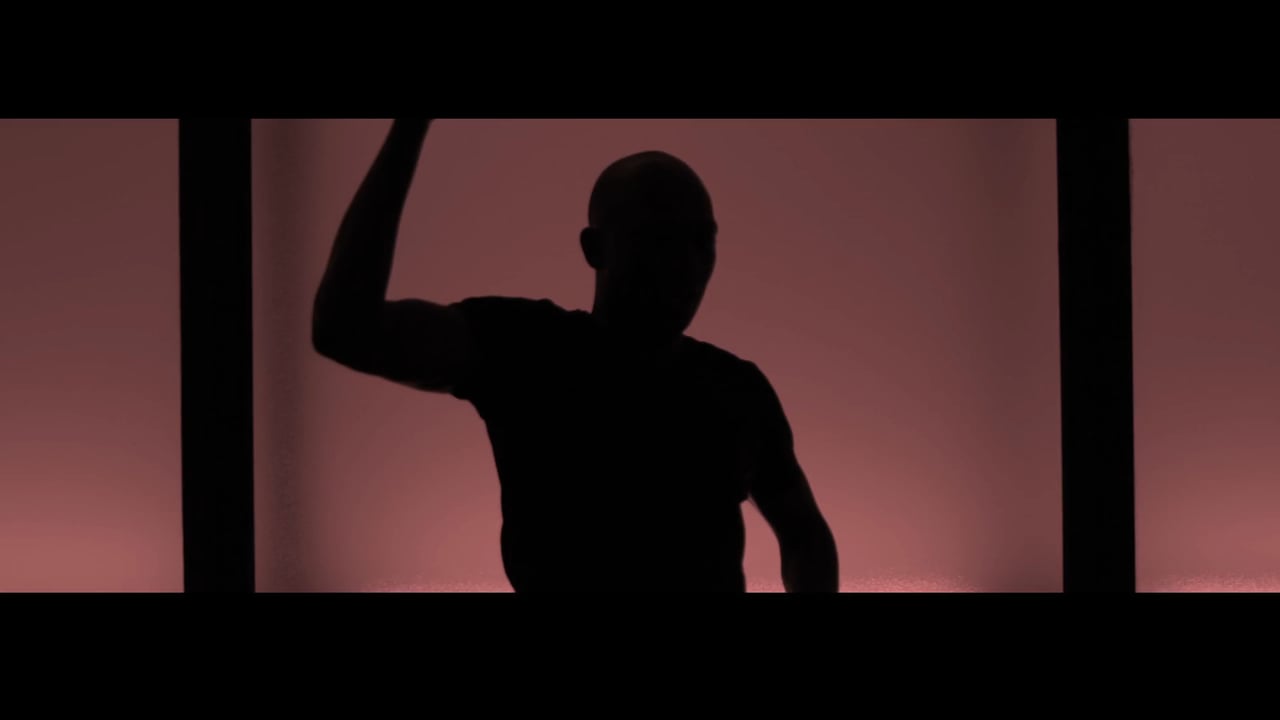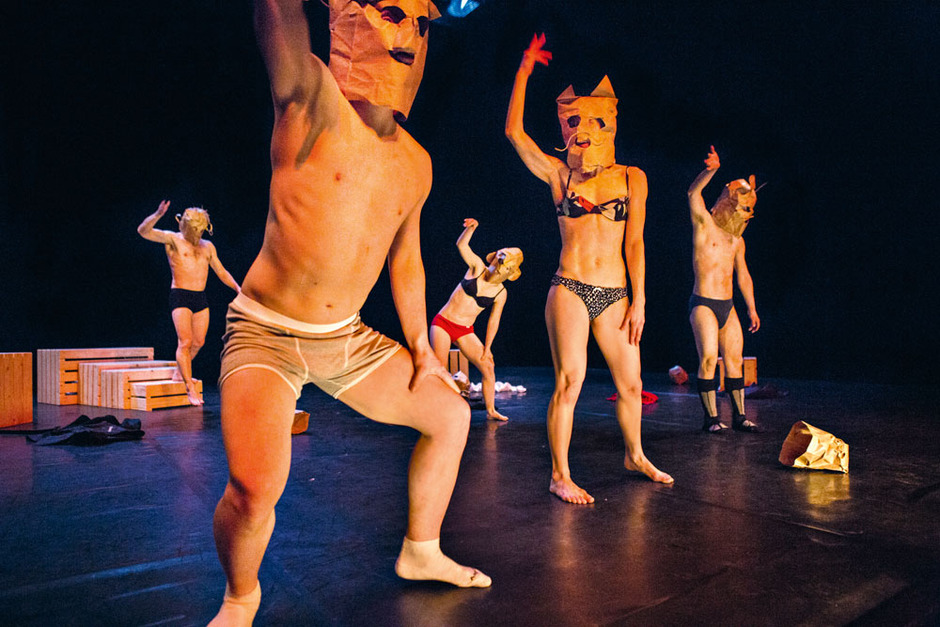Using inspiration from his own African background and his reflections on today’s world, Serge Aimé Coulibaly creates Kirina, a narrative about his contemporary and globalized daily reality. Kirinais not the reenactment of a historic event from West-African History. The original epic only served as an inspiration during the creation, as did many other epic stories and real contemporary events. Kirina is not a performance by African artists about Africa. It is a performance by world citizens – a choreographer with and an artistic team of members both with and without African roots – and inspired by their actual globalized reality. Derived from these inspirations, Coulibaly creates a performance about people on the move, the events that color and possibly direct these migrations and their influences on society.
Using a form that is very close to that of a traditional ballet with different chapters, he creates different moments of great emotional impact. There is the man who goes against the natural flow of time, as if the future and the people on the move could be held back. There is the community which in order to survive calls for its most profound energies, as if only their instincts will help them to move on. There is the woman struggling with femininity as a strategy. There is a man that cannot or can no longer walk who is encouraged by his environment to stand up, a clear reference to the epic Soundjata who was handicapped but just as well to all those images of exhausted migrants. There is the celebration of the fittest. There is the man who is chosen to sacrifice himself for a better future and is sent out on the sea, a scene based on a contemporary African tradition in which the ceremony for the death of those leaving the community and risking their lives at sea is held before their departure in case they won’t return. There is the big human flow that symbolizes migrations from all times and the individuals that are destabilized by their strength. There is the celebration of a (feminine black) leader. There is a wedding. Life continues no matter what the circumstances are. There is a rain dance in the middle of a sandstorm. To survive certain contexts superstition is more effective than belief in statistics and numbers. There is the lapidation of a strange woman who refuses to adapt, her hunchback a clear reference to Soundjata’s mother Sogolon but a situation that occurs today involving “strangers” all over the planet who are treated as if they were human waste just because they are or behave different. There is a general panic for no clear nor present reason, so well-known since the concept “terror attack” has integrated our societies. There is the big battle between two superheroes, the epic Battle of Kirina for sure but how different is it from our contemporary entertaining elections and debates? And there is the creature that derives from it all. Dangerous? Beautiful? Seductive? Violent? Is he the herald of a better future? Does he predict the apocalypse? Or is he no more than one small individual who endures life in his own personal way?
And in between, before and after all of that … there is the walk. The endless walk of humanity towards its destiny.No matter what.
As in all of Coulibaly’s creations, Kirina does not offer its audiences a clear answer to the questions it puts on the table. The performance aspires to open a space for reflection and dialogue about our contemporary global society and its ways of dealing with “the other” and migrations. In order to do so, it uses a great West-African epic to seek in those roots the moments of survival, bravery, virtue, regeneration and heroism and to share those human values with our world.
After a first successful première at the Festival de Marseille, Serge Aimé Coulibaly takes his new performance Kirina and it’s artistic team to Gladbecks Maschinenhalle Zweckel for a second première adapted to the special location in Germany’s famous Ruhrtriennale.



